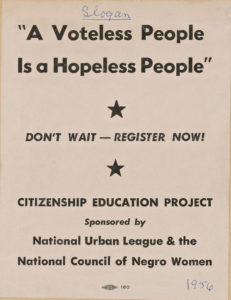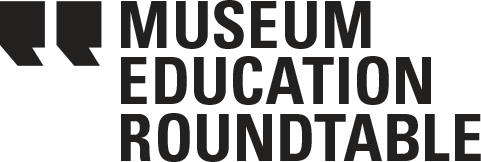MER Responds: November 3, 2020
The Museum Education Roundtable (MER) Board of Directors believes in the importance of democracy, the ongoing work of building a healthy and equitable society, and the responsibility of all cultural organizations–including museums–to strengthen civic participation and public engagement. While international in scope, many MER members, contributors, and Board Members live and work in the United States, and are actively engaged in and affected by the 2020 election.
We acknowledge that museum foundations trace back to and continue enacting colonial violence. There is abundant evidence of institutional racism, sexism, ableism, and other forms of discrimination that reflect how museums in the past and present do not always serve our communities equally. We also acknowledge that museums are trusted institutions, particularly in the face of governments that have not and do not serve all of their constituents. From this fraught and nuanced nature of our institutions, we draw our sense of responsibility to remain committed to supporting democratic processes and the work of repairing community relationships.
MER stands with museums and educators who create space to seek truth and combat the proliferation of fake news. We stand with science and the importance of informing public policy with measured, data-driven processes. We stand with people–namely Black, Indigenous, people of color, queer people and people with disabilities–upon whom museums’ and governments’ decisions inflict harm, such as failing to protect from the COVID pandemic and suppressing calls for racial justice and labor protection.
We take this stand by actively dismantling white supremacy, resisting apathy, and listening for truth spoken by our community.

Democracy requires just elections that are:
- Free: That all voters are allowed to vote without intimidation or barriers to participation.
- Fair: That all votes are counted accurately.
- Respected: That all participants, majority and minority, accept the results and support a peaceful transfer of power.
We call on museums and museum workers to use their skills, connections and power to reinforce these three points in the short term and build just and equitable cultures of democracy in the long term.
Here is a list of resources for museums and educators to turn to as we continue our civic duty to be spaces of democratic expression:
Resources around and immediately following the election:
- Fact Sheets on Unlawful Militias for All 50 States Now Available from Georgetown Law’s Institute for Constitutional Advocacy and Protection
- Election Trust Project
- NCOC and Museums Scenario Planning group – a wide collection of museum oriented resources from museum scenario planning group
- Hold the Line: A Guide to Defending Democracy
- Crip the Vote
Resources for engaging civic participation and democracy beyond the election:
- Council of Europe’s model of the competences required for democratic culture and intercultural dialogue
- Wide Awakes #CivicJoy Toolkit
- 198 Methods of Nonviolent Action
Articles from the Journal of Museum Education:
- Rooted in the Past, Active for the Future: Museums and Inspiring a New Generation of Citizens
- Rebuilding Civil Civics in Museums
- Museum Education in Times of Radical Social Change: International Perspectives and Problems
- Public History Institutions: Leaders in Civics Through the Power of the Past
- Targeting Truth: How Museums Can Collaboratively Address Social Issues
As always, we offer MER’s platform to uplift liberatory work in our field. If you have thoughts, blog posts, or resources to share with the museum education field, we welcome you to do so in this space. We can be reached through our social media channels or at [email protected].
We acknowledge the many organizations and individuals who work on these issues year-round and whose work has informed our thinking, including the National Conference on Citizenship and Museums scenario planning group.
In solidarity,
The Museum Education Roundtable Board of Directors

